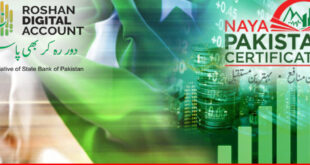There is a global attitude towards business competition after the formation of World Trade Organization but still some countries protect certain local industries in order to safeguard local population and enhance regulatory protection of consumers. Pakistan’s automotive car industry is amongst such industries, protected from outright direct competition in some ways by the policies of the government.
This sector has seen growth for quite some time with exponential growth in 2006 and 2007 fuelled by low-interest auto-loans from the banking sector. It employs between five to seven thousands people and is amongst the leading sectors of indirect taxes for the treasury. The annual turnover is estimated to be Rs300 billion with a contribution of 2.8 per cent to GDP.
The automotive car industry is one of the main operators of economic growth, stability and technological progress, besides being a major employer and taxpayer. The imported used cars in Pakistan have not only wasted our foreign exchange but also shifted jobs to the exporting countries.
In Japan, 8.8 per cent of the workforce is associated with its auto industry, while 5 per cent of the total American labor and 7.2 per cent of the South Korean workforce are employed by their respective car industries. The Japanese auto industry contributes 9.5 per cent to the country’s total taxes, whereas 13 per cent of state taxes and 2 per cent of federal taxes in the US come from automakers. In India, the auto industry pays 8 per cent of its total taxes, while Pakistani car assemblers contribute 4 per cent to the country’s taxes.
Take the example of countries like India and Thailand had restricted the import of used cars and was using tariff and non-tariff barriers to ensure that domestic production is not hurt. No auto manufacturing country permits liberal import of used cars as Pakistan. The government will do well to tighten this policy if the domestic auto industry is to flourish.
The automotive car sector in Pakistan has great potential for growth but the car to people ratio of approximately 1/100 is still one of the lowest in emerging economies. Since the start of the automotive industry in Pakistan, no substantial transfer of car manufacturing technology has taken place. The local manufacture of car components is less with that of the vital components virtually non-existent.
There are only three major car assemblers in Pakistan namely Pak Suzuki Motors, Honda Atlas Cars and Indus Motors with only Pak Suzuki Motors focusing on smaller cars. Some of the basic problems facing the automotive sector are weak regulations governing the sector, lack of attention to international standards of safety particularly in the small car sector, failing to meet the demand possible with available capacity, high prices with illegal premiums charged for newly-assembled cars, price fixation practices amongst the cartel of the three major players, lack of ability to compete with cost-effective and high quality products from neighboring countries and extensive barriers to entry for new aspirants.
Favors to middle class
A large middle class in Pakistan is still without a car and demand small economical cars. The neighboring India cars have long been manufactured locally. Take the example of Tata Motors of India, which has successfully provided economical cars like Tata Nano, which has attracted the booming middle class in India particularly families, away from the two wheelers with significant growth in market demand for cars. Pak Suzuki Motors, which holds the lion’s share of almost 60 per cent of the four-wheeler industry sells smaller cars with no- good security features despite huge prices as compared to smaller cars in neighboring India.
The government policies of reducing the age limit of imported used cars from 5 to just 3 years as well as imposing other restrictions on imports of used vehicles have resulted in a massive decline of almost 62 per cent in the import of used cars in just the first half of the last fiscal year 2014 alone. This helped the local automotive assembly sector to grow sales volume but instead of passing some of the benefits to the consumers, they choose to increase the sales prices too despite the strengthening of Pak Rupee and reduced input costs. The automotive car assembly industry is heavily concentrated with consumers paying a substantial sum for cars. High custom duties and import restrictions strengthen this monopoly of the prevailing cartel, leaving the consumer with very few options.
In order to improve the situation and encourage the automotive sector in Pakistan, the government should lay strong regulation to protect consumer interests, remove regulatory barriers to entry, encourage transfer of technology to Pakistan, tax incentives for new investors to enter the market and stronger legislation regarding cars safety and emission standards. With the above recommended steps and a strong political will the dream of self-reliance and earning foreign exchange through quality exports of cars can become a reality.
With a little more technology have not only transformed Toyota Corolla’s popular image of a bland Sedan, but also driven the sales and profits of its Pakistani manufacturer the Indus Motor Company.
The unaudited IMC accounts for the first half of this financial year indicate that the redesigned Corolla rocked automaker’s sales by a hefty 61 per cent to 20,729 cars from 8,085 units sold during the same period of the previous year. It had exported 100 units to Sri Lanka last year and project to sell another 700 units to the Sri Lankan government this year.
The company’s market share surged from 22 per cent to 28 per cent. Its revenues climbed from Rs26.1 billion to Rs39.1 billion and profit-before-tax grew from Rs1.95 billion to a record high of Rs4.58 billion, on account of higher sales, improved margins, increased treasury income and tighter control on fixed costs. Moreover, the firm’s earnings per share (EPS) more than doubled to Rs39.99, just as it turned 25 before the end of calendar year 20114. Pakistan is ranked among the top 30 countries out of 52 across the globe where Toyota cars are manufactured, and one of 13 where the new, redesigned Corolla is being produced for local and export markets.
Need of new technology
Pakistan Association of Auto Parts and Accessories Manufacturers said the country’s auto market expansion cannot be materialized, as the local industry is still hovering around 150,000 vehicles per year mainly on account of import of used cars that is single impediment for new entrants and new investments in the auto sector.
In its trade policy inputs, PAAPAM recommended that the government’s trade policy should focus on new entrants to invest in Pakistan and start manufacturing their products. “It is of utmost importance that new technology should be imported into Pakistan through joint ventures and technical collaborations with flagship companies so that Pakistan can move away from traditional and low value exports, and explore high value sectors like engineering, auto.”
The proposals said that the government has to focus on countries it has cordial and friendly international relations with and who are ready to enter into Pakistan. Turkey and China are countries that can assist our industry, allowing the auto industry to grow and mature towards our mutual dream of a national car.
 PAGE Blog Business Weekly Magazine
PAGE Blog Business Weekly Magazine

